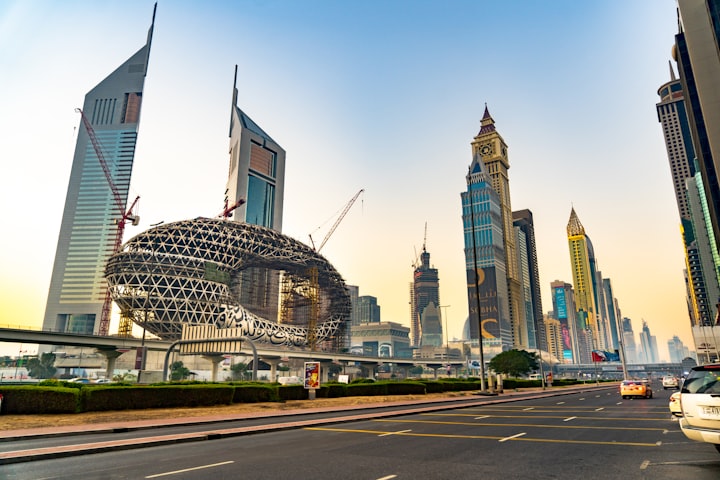The Dynamic Political Environment in the Middle East
A Comprehensive Analysis

Introduction:
The Middle East has long been a region of great political significance, characterized by its intricate dynamics, historical conflicts, and diverse cultural heritage. The political environment in the Middle East is a multifaceted landscape that has witnessed countless changes, both positive and negative, shaping the destinies of nations and impacting global politics. This article aims to provide a comprehensive analysis of the political environment in the Middle East, delving into its historical context, key regional actors, major challenges, and potential opportunities for stability and progress.
Historical Context:
To understand the present political climate in the Middle East, one must delve into its historical context. The region has been a cradle of civilization, witnessing the rise and fall of ancient empires and experiencing conquests by various powers throughout history. European colonization and the subsequent dismantling of empires during the 20th century further shaped the region's political landscape, often leaving behind deeply rooted grievances and conflicts.
Key Regional Actors:
The Middle East is home to a diverse array of nations, each with its unique political structure, societal composition, and regional ambitions. Some of the key regional actors that exert significant influence on the political environment in the Middle East include:
Saudi Arabia: As a regional heavyweight, Saudi Arabia plays a crucial role in Middle Eastern politics. Its vast oil reserves, conservative monarchy, and custodianship of Islam's holiest sites grant it substantial influence in shaping regional affairs.
Iran: Iran stands as a major player in the Middle East, projecting its influence through a combination of ideological, religious, and geopolitical factors. Its quest for regional dominance, as well as its involvement in proxy conflicts, has made it a contentious force within the region.
Israel: As the only democratic state in the Middle East, Israel's politics and policies significantly impact the region. The Israeli-Palestinian conflict, security concerns, and diplomatic relations with neighboring countries remain key factors in shaping the political environment.
Turkey: Straddling Europe and Asia, Turkey has emerged as an influential actor in the Middle East. Its historical legacy, strong military, and regional ambitions position it as a key player, particularly in conflicts such as the Syrian civil war.
Egypt: With its strategic location and historical significance, Egypt continues to play a pivotal role in Middle Eastern politics. As the most populous Arab country, its internal dynamics, including governance, human rights, and stability, have far-reaching implications for the region.
Challenges and Conflict Hotspots:
The Middle East faces a multitude of challenges that contribute to its volatile political environment. Some of the major challenges and conflict hotspots include:
Sectarian and Ethno-Religious Tensions: The region is deeply divided along sectarian and ethno-religious lines, often leading to conflicts. The Sunni-Shia divide, exemplified in countries such as Iraq, Bahrain, and Yemen, exacerbates tensions and fuels proxy battles between regional powers.
Proxy Conflicts: Proxy conflicts have become a defining feature of the Middle East's political landscape. Powerful regional actors, such as Saudi Arabia and Iran, engage in proxy wars, supporting opposing factions in countries like Syria, Lebanon, and Yemen, further destabilizing the region.
Terrorism and Extremism: The rise of extremist groups, such as the Islamic State (ISIS), Al-Qaeda, and various affiliated factions, has posed a severe challenge to regional stability. These groups exploit power vacuums, sectarian tensions, and disenfranchisement to propagate their ideologies and carry out acts of violence.
Socioeconomic Disparities: The Middle East faces significant socioeconomic challenges, including high youth unemployment, poverty, and corruption. These issues, combined with authoritarian governance and limited political freedoms, fuel discontent and social unrest, contributing to the political volatility in the region.
Opportunities for Stability and Progress:
Despite the challenges, the Middle East also presents opportunities for stability and progress. Some key areas with the potential for positive change include:
Diplomatic Initiatives: Diplomatic efforts aimed at resolving long-standing conflicts, such as the Israeli-Palestinian issue and the war in Yemen, could alleviate tensions and create opportunities for stability. International mediation and regional dialogue should be prioritized to foster a peaceful resolution.
Economic Diversification: Many countries in the Middle East heavily rely on oil revenues, which can be a source of instability. By diversifying their economies, investing in non-oil sectors, and promoting entrepreneurship and innovation, governments can foster long-term stability and reduce socioeconomic disparities.
Promotion of Good Governance: Emphasizing transparency, accountability, and the rule of law can help mitigate corruption and address grievances, contributing to political stability. Enhancing human rights, empowering civil society, and fostering political participation are crucial steps towards building a more inclusive and resilient political environment.
Regional Cooperation: Strengthening regional cooperation mechanisms can foster trust, facilitate dialogue, and address shared challenges. Platforms like the Gulf Cooperation Council (GCC), the Arab League, and the Organization of Islamic Cooperation (OIC) can play a pivotal role in promoting stability, resolving conflicts, and fostering socioeconomic development.
Conclusion:
The political environment in the Middle East is a complex and dynamic landscape shaped by historical legacies, regional rivalries, and a multitude of challenges. While the region faces significant obstacles, including sectarian tensions, proxy conflicts, and extremism, there are also opportunities for stability and progress. Diplomatic initiatives, economic diversification, good governance, and regional cooperation can contribute to a more peaceful and prosperous Middle East. It is through collective efforts and a genuine commitment to dialogue and understanding that the nations of the Middle East can forge a path towards a more stable and inclusive political environment, benefiting both the region and the international community at large.
About the Creator
walter Rodriguez
I love writing article and providing you guys with knowledge and information about certain things in life that maybe you will come across into.






Comments
There are no comments for this story
Be the first to respond and start the conversation.